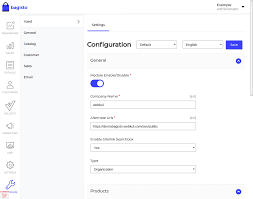
Search Engine Optimization (SEO) is a crucial aspect of any website’s success in today’s digital age. When it comes to building websites with powerful SEO capabilities, Laravel stands out as a top choice for developers.
Laravel, a popular PHP framework, offers a range of features and tools that can help improve your website’s search engine rankings and visibility. Let’s explore some of the key ways in which Laravel can supercharge your SEO efforts:
Laravel promotes clean and semantic coding practices, which are essential for good SEO. Search engines favor websites with well-structured code that is easy to crawl and index. By using Laravel, you can ensure that your website adheres to best coding practices, making it more attractive to search engines.
Laravel provides a powerful routing system that allows you to create SEO-friendly URLs for your web pages. With Laravel’s routing capabilities, you can easily define custom URLs that are descriptive and keyword-rich, helping improve your website’s visibility in search engine results.
Website speed is a critical factor in SEO rankings. Laravel offers built-in tools for optimizing performance, such as caching mechanisms and database query optimization. By leveraging these features, you can ensure that your website loads quickly and provides a seamless user experience, which can positively impact your search engine rankings.
Security is another important aspect of SEO. Search engines prioritize websites that are secure and protect user data. Laravel comes with built-in security features such as CSRF protection, encryption, and secure authentication mechanisms. By using Laravel, you can enhance the security of your website and build trust with both users and search engines.
Laravel seamlessly integrates with various third-party tools and services that can further enhance your SEO efforts. Whether you need to implement schema markup, track website analytics, or optimize images for search engines, Laravel provides the flexibility to integrate these tools into your website easily.
In conclusion, Laravel is not just a powerful PHP framework for building dynamic websites – it is also an excellent choice for enhancing your website’s SEO capabilities. By leveraging Laravel’s features and tools, you can optimize your website for better search engine visibility, attract more organic traffic, and ultimately boost your online presence.
Optimizing your URLs by including relevant keywords is a crucial tip for improving Laravel SEO. By incorporating targeted keywords into your URLs, you can signal to search engines the content and purpose of your web pages. This practice not only helps search engines understand the relevance of your content but also enhances the user experience by providing clear and descriptive URLs. With Laravel’s robust routing system, you can easily create SEO-friendly URLs that not only attract search engine traffic but also improve the overall visibility and ranking of your website.
Creating unique and descriptive meta titles and descriptions for each page is a crucial aspect of Laravel SEO. By customizing these elements to accurately reflect the content of each page, you can improve your website’s visibility in search engine results. Unique meta titles help search engines understand the relevance of your content, while descriptive meta descriptions provide users with a preview of what to expect when they click on your link. This practice not only enhances the user experience but also increases the likelihood of your pages ranking higher in search engine results pages, driving more organic traffic to your website.
When optimizing your Laravel website for SEO, a crucial tip is to use SEO-friendly image filenames and alt text. By giving your images descriptive filenames that include relevant keywords, you can improve the chances of them being discovered by search engines. Additionally, providing alt text for your images not only enhances accessibility for visually impaired users but also gives search engines valuable information about the content of the image, further boosting your website’s SEO efforts. Incorporating these practices into your Laravel website can help enhance its visibility in search engine results and drive more organic traffic to your site.
Generating XML sitemaps is a crucial tip for optimizing SEO in Laravel. By creating XML sitemaps, you provide search engines with a roadmap of your website’s structure, making it easier for them to crawl and index your site effectively. This helps search engines discover all the important pages on your website, leading to improved visibility and higher rankings in search results. XML sitemaps also allow you to provide additional information about each page, such as when it was last updated, priority level, and more, further enhancing your site’s chances of being properly indexed by search engines.
When focusing on Laravel SEO, it is essential to implement proper redirections for any changed or removed URLs. By setting up 301 redirects for outdated or deleted pages, you ensure that users and search engines are directed to relevant content, preventing potential loss of traffic and preserving your website’s authority and ranking. This proactive approach not only enhances user experience but also signals to search engines that your site is well-maintained and trustworthy, contributing positively to your overall SEO efforts.
Monitoring your site’s performance is a crucial aspect of Laravel SEO strategy. By using tools like Google Analytics, you can gain valuable insights into how users interact with your website, track key metrics such as traffic sources and user behavior, and identify areas for improvement. With this data at your fingertips, you can make informed decisions to optimize your website for better search engine visibility and user experience. Regularly monitoring and analyzing your site’s performance using tools like Google Analytics is essential for staying ahead in the competitive online landscape and driving continuous improvement in your SEO efforts.